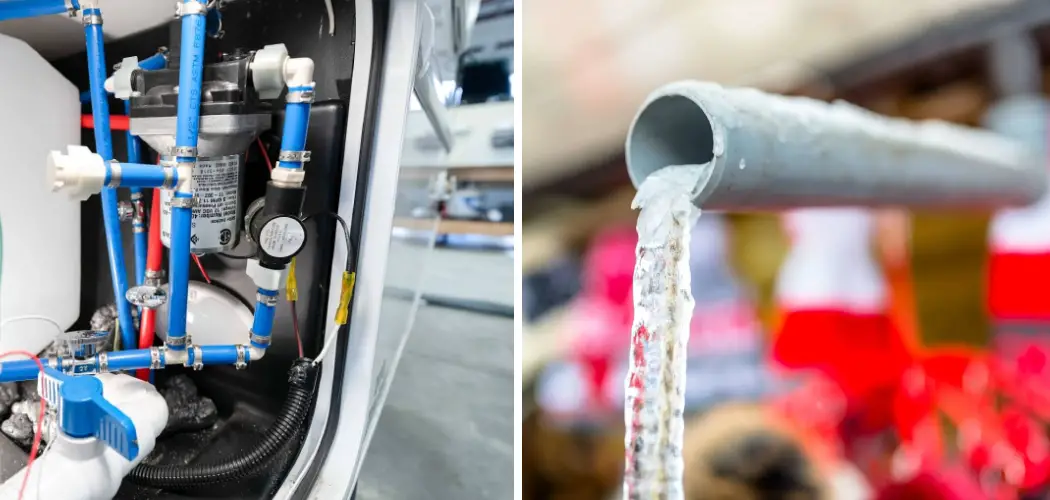Keeping RV water lines from freezing is a crucial concern for those who enjoy camping and traveling in their recreational vehicles during the cold winter months. Freezing temperatures can lead to frozen pipes and plumbing issues that can be costly and inconvenient. In this comprehensive guide, we will explore effective methods and tips to prevent RV water lines from freezing.
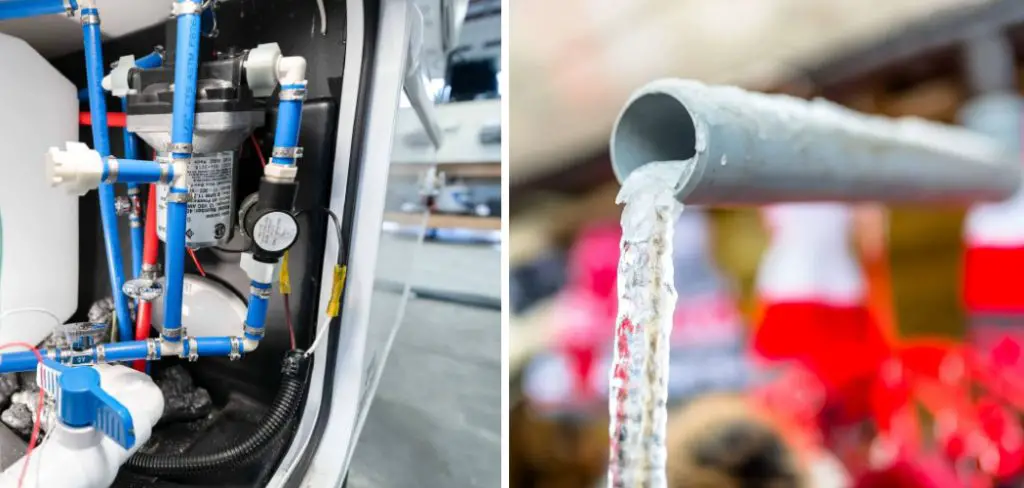
From techniques like opening cabinet doors to allow heat in, heating the bays, using heat tape on RV pipes, and skirting your RV, to practical advice such as closing the gray valve and using onboard freshwater, this article will provide a step-by-step approach to safeguarding your RV’s plumbing system from winter-related damage.
Whether you’re a full-time RVer or just an occasional traveler, understanding how to keep RV water lines from freezing is essential for a comfortable and stress-free journey during the colder seasons.
The Risks and Challenges of RV Water Lines Freezing in Cold Weather
One of the biggest risks and challenges that RV owners face during cold weather is the freezing of their water lines. This can be a major inconvenience and even lead to costly repairs if not properly addressed. In this guide, we will explore the potential dangers of frozen water lines in an RV and provide tips on how to prevent it from happening.
Why Do RV Water Lines Freeze?
RV water lines are susceptible to freezing because they are exposed to the outside elements and often not insulated. When temperatures drop below freezing, any standing water inside the lines can quickly turn into ice, causing blockages and potentially damaging the pipes. This is especially common in older RVs that may have outdated or inadequate plumbing systems.
The Dangers of Frozen RV Water Lines
Aside from the obvious inconvenience of not having access to running water, frozen RV water lines can lead to more serious issues. As the ice expands inside the pipes, it can cause them to crack or burst, resulting in costly repairs. It can also damage pumps and other components in the RV’s plumbing system. In extreme cases, a frozen water line can even cause a complete shutdown of the RV’s water system.
10 Methods How to Keep RV Water Lines from Freezing
1. Insulate the Water Lines
Insulating your RV’s water lines is one of the best ways to prevent them from freezing in cold temperatures. You can do this by wrapping insulation around the pipes or using special insulated covers that are designed specifically for RV water lines. This will help to keep the pipes warm and prevent them from freezing up.
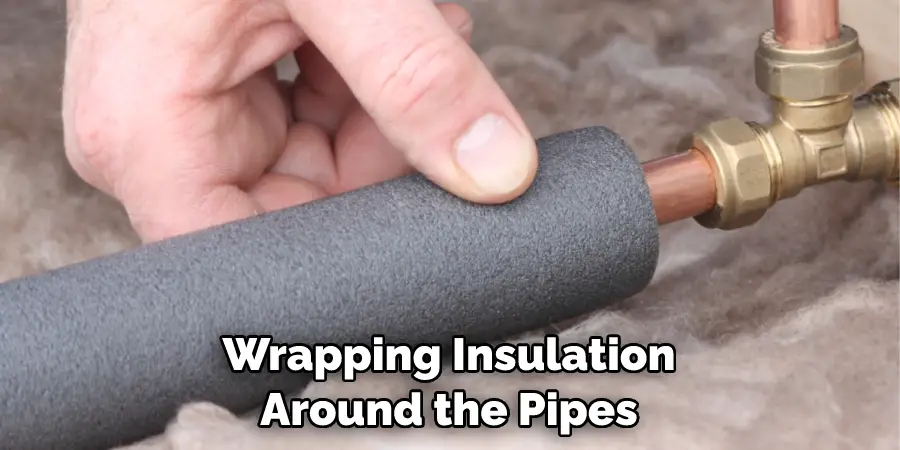
2. Use Heated Water Hoses
If you’re looking for an even more effective way to keep your RV’s water lines from freezing, consider investing in a heated water hose. These hoses are designed with a built-in heating element that keeps the water inside warm enough to prevent it from freezing, even in extremely cold temperatures.
3. Use Antifreeze
Using antifreeze is another great way to protect your RV’s water lines from freezing up in cold weather. Simply pour some antifreeze into your RV’s fresh water tank before winter sets in, and it will help to keep the water inside warm enough so that it won’t freeze.
4. Increase Your RV Insulation
Increasing your RV’s insulation is another effective way to keep its water lines from freezing in cold weather. Make sure that all of the walls and windows are properly insulated, as this will help to keep the interior of your RV warm and prevent any of its pipes from becoming frozen during winter months.
5. Install Heat Tape on Pipes
Installing heat tape on any exposed pipes is another great way to keep them from freezing during cold weather months. Heat tape is a type of electrical wiring that can be wrapped around pipes and plugged into an outlet, which will provide just enough warmth to keep them from becoming frozen over time.
6. Keep Your Freshwater Tank Full
Keeping your RV’s fresh water tank full at all times is another great way to protect its water lines against freezing temperatures during winter months. The fuller the tank is, the less likely it will be for any of its pipes or hoses to become frozen over time due to a lack of insulation or heat loss through evaporation or condensation buildup within the tank itself.
7. Install a Water Heater
Installing a small electric or propane-powered water heater near your RV’s plumbing system is another effective way to ensure that its pipes don’t freeze over during winter months when temperatures drop significantly low outside. The heater will provide just enough warmth throughout the system so that none of its components become frozen over time due to a lack of heat transfer between internal surfaces within the plumbing system itself.
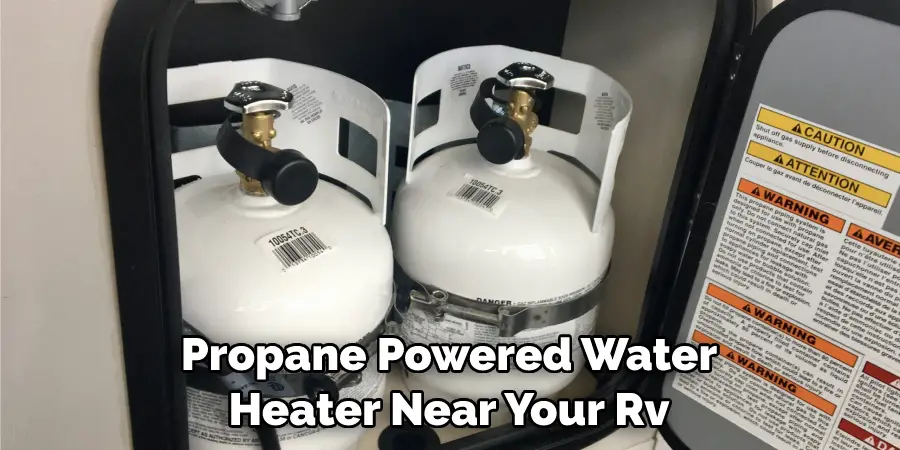
8. Move Your RV Indoors During Winter Months
Moving your RV indoors during winter months is one of the most effective ways you can guarantee that its plumbing system won’t become frozen over time due to extreme cold temperatures outside. If you don’t have access to an indoor space large enough for your vehicle, consider renting storage space at a nearby facility instead.
9. Use Pipe Covers
Using pipe covers can also help insulate your RV’s plumbing system against extreme cold temperatures outside. Pipe covers are made out of thick materials such as foam or rubber, which provide extra insulation against extreme temperatures. Just make sure you purchase covers specifically designed for use with RVs, as these have been tested for durability against harsh weather conditions.
10. Keep Your Cabinets Open During Winter Months
Finally, keeping your cabinets open during winter months can also help reduce condensation buildup within them, which could otherwise lead to ice formation on exposed metal surfaces such as those found within plumbing systems.
By opening up these cabinets periodically throughout winter, you’ll allow air circulation within them, thus reducing chances for ice formation on any exposed metal surfaces, which could potentially damage their integrity if left unchecked.
Things to Consider When Keeping RV Water Lines from Freezing
One of the biggest challenges for RV owners during the winter months is keeping their water lines from freezing. While there are several methods and products available to prevent water lines from freezing, it’s important to understand some key factors that can affect the effectiveness of these solutions. Here are some things to consider when trying to keep your RV water lines from freezing:
Temperature:
The most obvious factor that affects whether or not your water lines will freeze is the temperature outside. If you’re in an area where temperatures regularly drop below freezing, you’ll need to take extra precautions to keep your pipes from freezing.
Insulation:
Proper insulation is key when it comes to preventing freezing pipes. Make sure your RV is well-insulated, especially in areas where water lines run through. You can also add extra insulation around exposed pipes or use heat tape to keep them warm.
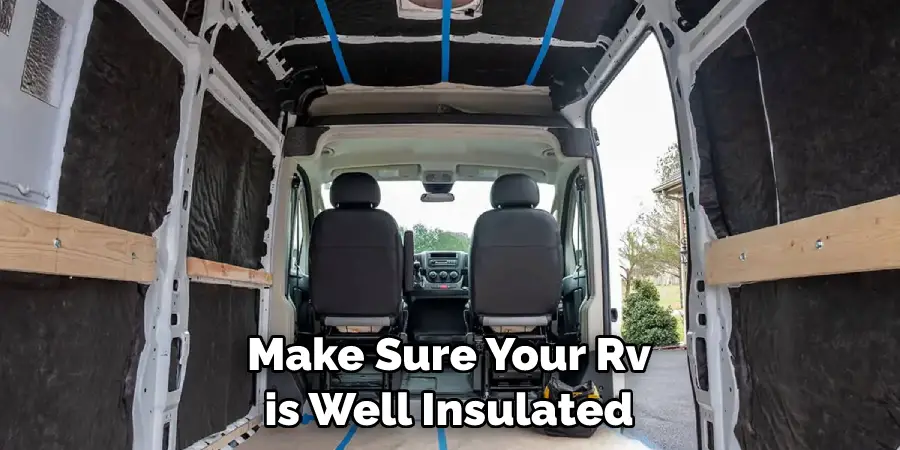
Heat source:
Another important factor is having a reliable heat source inside your RV. This could be a furnace, space heater, or even electric blankets. Just make sure to follow safety precautions and never leave any heat sources unattended.
Common Mistakes to Avoid When Winterizing Your RV
During the winter season, many people prefer to take their RV for a trip or head to their favorite campsite. However, with the freezing temperatures, it’s crucial to properly winterize your RV to prevent any potential damage that could occur due to frozen water lines.
Mistake #1: Not Properly Draining the Water System
One of the most critical steps in winterizing an RV is to drain the water system completely. Many people make the mistake of not fully draining their water tanks, which can lead to frozen pipes and potential damage. It’s crucial to open all faucets and drains, including the hot water tank, until there is no more water coming out.
Mistake #2: Not Adding Enough Antifreeze
Another common mistake when winterizing an RV is not adding enough antifreeze to the system. It’s crucial to use enough antifreeze to ensure that all of your water lines are protected against freezing temperatures. Follow the manufacturer’s instructions for how much antifreeze to use, and make sure to add it to all faucets, drains, and toilets.
Mistake #3: Not Properly Insulating Exposed Piping
Exposing pipes can be a major issue during winterization. If any of your water lines are exposed to the freezing temperatures, it can lead to them freezing and potentially bursting. It’s essential to properly insulate all exposed piping with foam pipe insulation or heat tape.
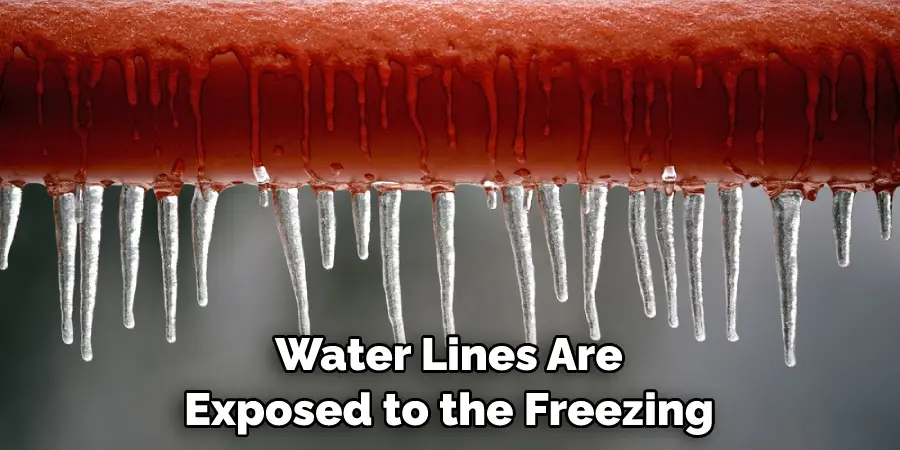
Conclusion
At the end of the day, your water lines are an integral part of properly maintaining your RV and keeping it functioning at its best. Keeping them from freezing is essential for this, so following the tips provided in this blog post will help you protect your waterlines, and keep them running smoothly all year round.
So don’t neglect this important task — be proactive about learning how to keep RV water lines from freezing today! With a little bit of knowledge and effort, you can ensure that your RV water system continues to run smoothly through even the coldest winter days — ensuring that you can enjoy comfortable temperatures and reliable plumbing all season long!

